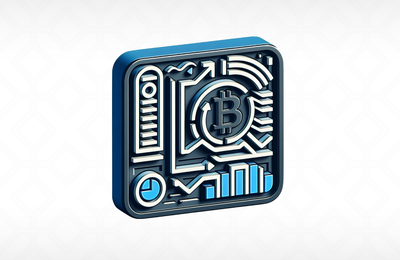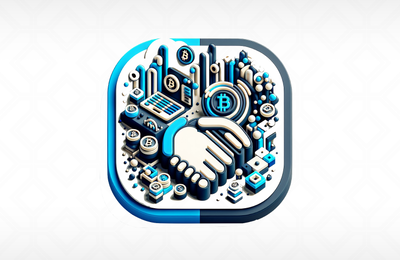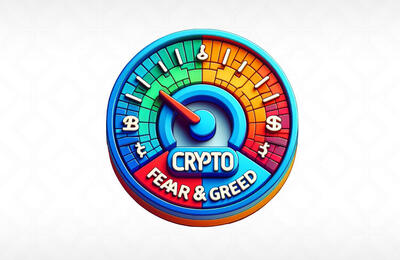
Cryptocurrencies are revolutionizing the way businesses operate globally and at a dizzying speed, too. They have been seen providing many opportunities, efficiencies, and unique advantages that many traditional financial systems still lack. Here’s a more detailed look at the key roles cryptos have been spearheading in modern business operations today.
Cryptocurrencies in Modern-Day Business Finance
Enhanced Security Measures
Transactions with virtual coins used more advanced cryptographic strategies to better secure every transaction and have tight control over the creation of new units. This makes their activities highly secure and shielded against fraud or fraudsters compared to older financial systems. Specifically, they’re famed for these measures:
Decentralization
These digital currencies, with their blockchain advancement, make sure that no single entity gets to control the entire network, taking into consideration their investors' apprehension over hacking. Some economic authorities even project that by 2027, around 10% of global GDP could already be stored in blockchain.
Transparency
Every transaction with crypto is laden with transparency, with all its transactions recorded on a public ledger, so it becomes easier to trace and verify its every activity.
Immutable Records
Once recorded, there’s no taking back, and any transaction entered can no longer be altered to ensure data integrity in every digital asset exchange.
Also, using platforms or FinOps tools can further enhance transaction security by providing real-time monitoring and risk management and ensuring every activity adheres to established protocols.
The Streamlined Transactions
Crypto is by far the fastest when it comes to online banking transactions, unlike the more traditional banking operations. Traditional bank transactions would take days, especially if they involve international transfers, while cryptocurrencies could deliver a fund transfer right away.
On top of that, these exchanges boast these advantages:
No Intermediaries
Every digital currency exchange is directly between parties online, eliminating the need for banks or other go-betweens.
Lower Costs
The reduction of intermediaries means lower transaction fees. Blockchain-based payments have even been found to reduce personal or business transaction costs by up to 80%.
Global Reach
As an exchange of its own, cryptos like bitcoins are not bound by geographic limitations, making international trade transactions smoother and more efficient.
Crypto as a Payment Method
Many businesses today now honor cryptocurrencies as a form of payment, which offers customers more flexibility and efficiency among the host of benefits they provide, such as:
Diverse Payment Options
Businesses accepting virtual currencies can attract tech-savvy customers, who are usually among the affluent who prefer digital transactions and the efficiency attached to them.
Reduced Chargebacks
Transactions with these currencies do away with the risk of chargebacks, as their transactions are irreversible.
Worldwide Transaction
Companies can easily accept payments from their customers all over the world without dealing with issues like currency conversion or fluctuations.
Access to New Markets
Today’s convertible virtual currencies already opened doors to new markets, particularly in regions where traditional banking systems used to dominate and are even underdeveloped. These challenges of banking inaccessibility pressed forward crypto’s advantages, such as:
Financial Inclusion
The advantages of digital currencies bring banking and other financial services to the unreached and “unbanked” populace, giving them the opportunity to be part of global economic activities.
Emerging Markets
More businesses can hook up with new customer bases in developing countries where cryptocurrencies thrive and are growing fast.
Cross-Border Commerce
Companies, big or small, can easily reach out and engage in cross-border trading without worrying about currency conversions and exchange rate fluctuations affecting their finances.
Smart Contracts
These smart contracts are so named because they are self-executing by nature, with the terms of the agreement directly written into codes. They will automatically enforce and execute agreements, without human intervention, when their predefined conditions are reached. Mainly, they have these unique aspects:
Automation
These smart contracts automate and ease the bustle in business processes, effectively reducing businesspeople’s need for manual activity and administrative overhead costs.
Accuracy
As can be expected in digital operations, crypto-currency transactions ensure precise and error-free execution of terms, allowing no room for costly mistakes in its financial activities.
Cost Savings
As each digital exchange eliminates intermediaries and reduces paperwork, smart contracts can significantly reduce overall costs.
Decentralized Finance (DeFi)
DeFi is one character of crypto’s financial services that depends on blockchain technology so users can access banking services without going through the intricacies of traditional banking. Their way of doing banking is through:
Peer-to-Peer Lending
With digital currency and blockchain, businesses can lend and borrow money directly from their peers, bypassing those authentication and waiting sessions traditional banks require.
Yield Farming
Businesses could easily earn interest on their idle or sleeping assets through decentralized platforms on a blockchain.
Tokenization
Assets under DeFi can be tokenized and traded on blockchain networks to provide liquidity and new investment opportunities, which were approximately $50 billion in early 2024.
Conclusion
Apart from faster transactions, these virtual currencies play quite crucial roles in today’s modern business operations. More people enjoy their benefits due to faster transactions, enhanced security, and access to new markets worldwide.
As technology evolves and advances, the adoption of these digital currencies and blockchain solutions across all industries is expected to increase, further transforming the business arena today and in the future.





















